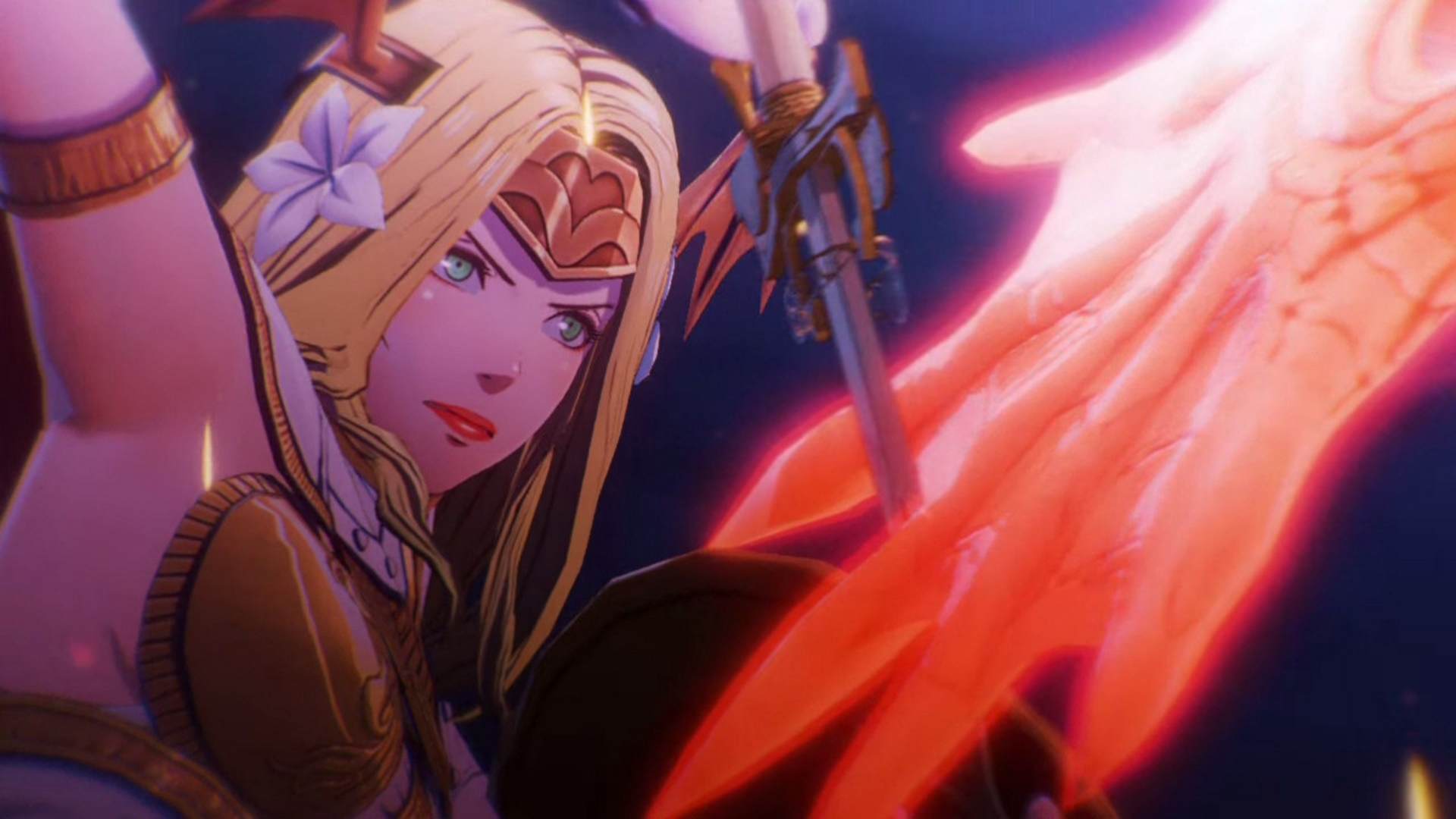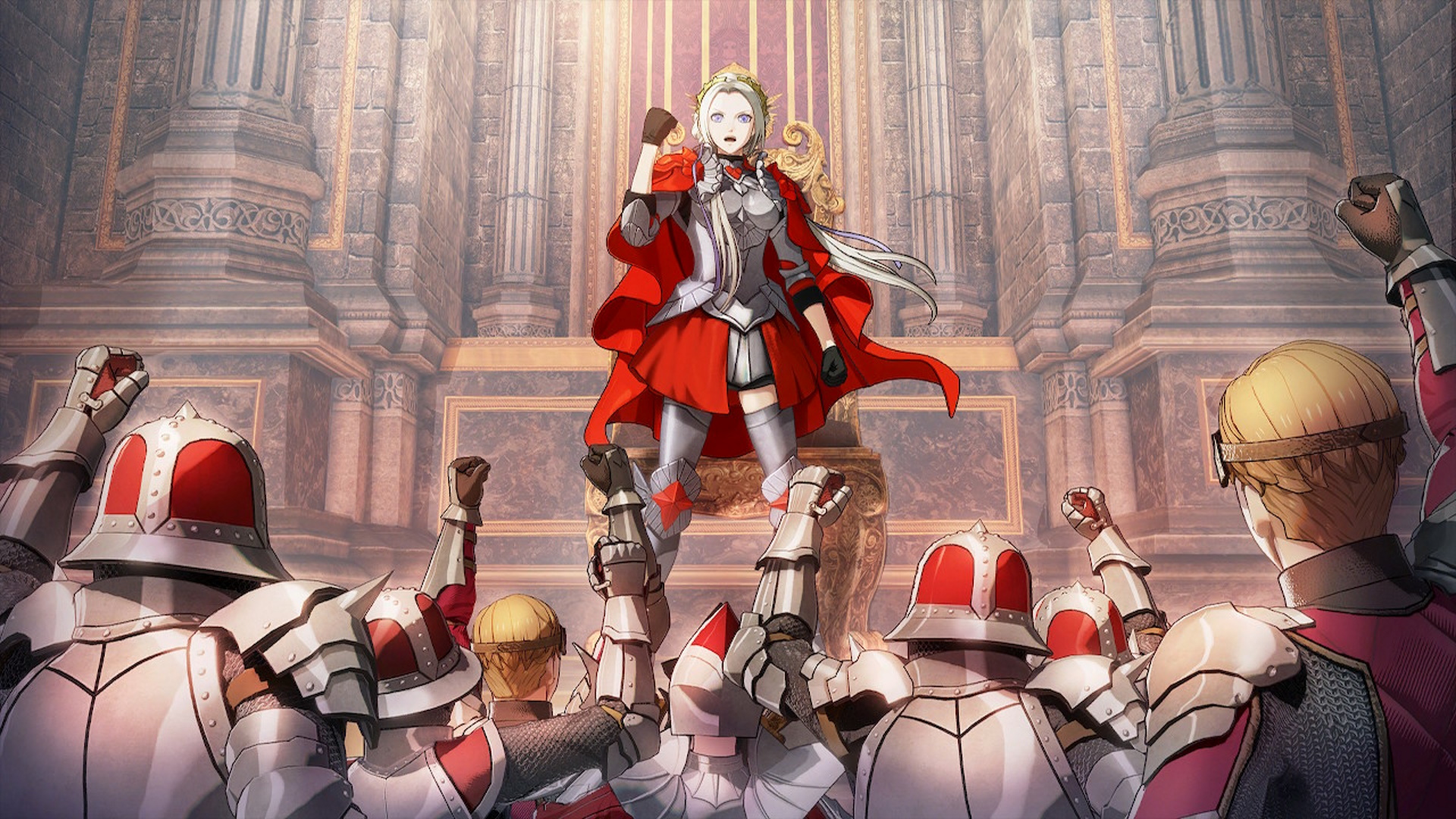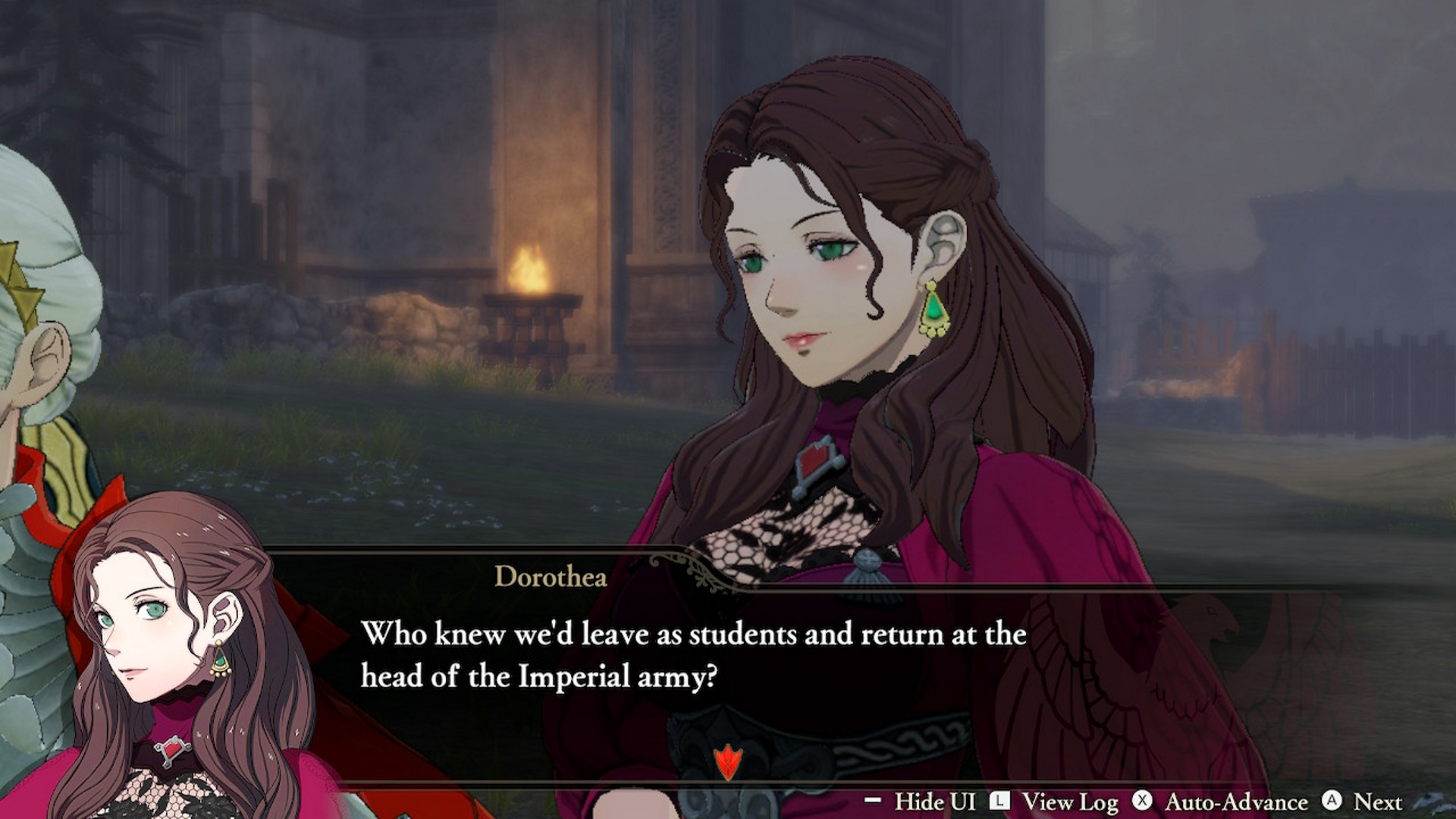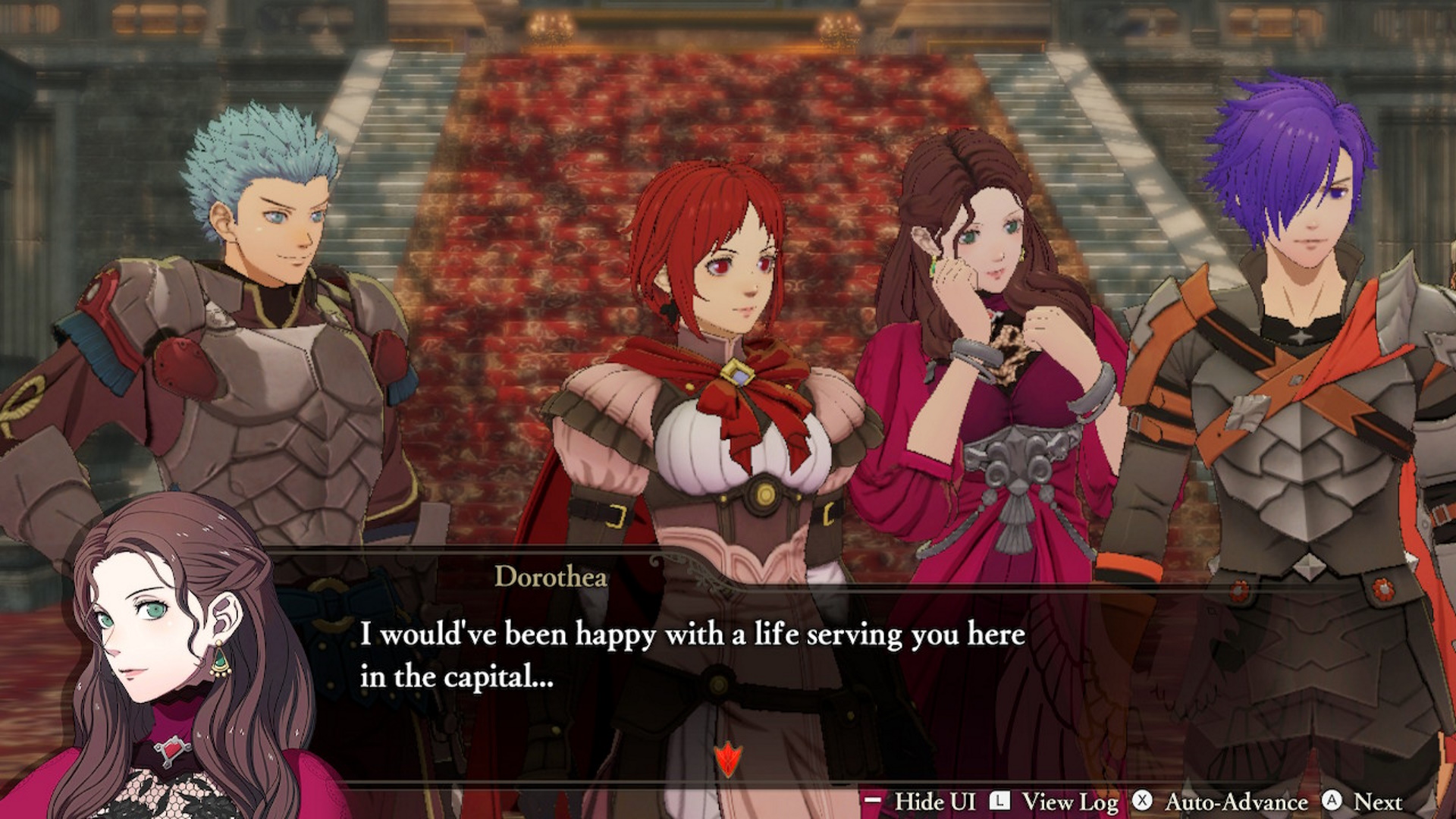Everyone has those moments where they wonder how their life might be different if something else had happened – if they never met a certain friend or if they didn’t take that risk. Intelligent Systems and Omega Force took that feeling and made Fire Emblem Warriors: Three Hopes out of it. Not quite a sequel or prequel, but more of an alternate universe “equal” that builds on Three Houses by asking one simple question: what if the house leaders from Three Houses never met Byleth?
The results are unexpectedly complex and splendidly realized, building on everything that makes Three Houses so absorbing and weaving a tale that’s superior to the original in many ways, even though it couldn’t exist without it. While the real-time battles accentuate some of Three Houses’ weaker points, and not every system gets the same fully developed treatment it should, Fire Emblem Three Hopes is easily one of the best Warriors spinoffs and a cracking good Fire Emblem game.
Fire Emblem Three Hopes Review: Once More Unto the Breach
Three Hopes starts with a scene familiar to anyone who played Three Houses. Edelgard, Dimitri, and Claude flee a group of bandits, but it’s Shez, a new mercenary, who steps in to save the day. Shez doesn’t have Byleth’s soul-searching qualities. They aren’t there to help anyone grow and learn. They just want money to survive on and are willing to help out a good cause if it fills their pockets.
This simple shift starts a dramatic change in the story and leads to some surprising changes in the way major events unfold. Warriors spinoffs proved they could tell meaningful, engaging stories with Hyrule Warriors: Age of Calamity, but I didn’t expect Three Hopes to build as strong a narrative as it does. I certainly wasn’t thinking it would resolve some of Three Houses’ biggest plot issues or take the direction it does.
The shift in Three Hopes’ main characters relying on Shez, a sword-for-hire they can control with cash and “get rid of” if need be, leads to some superb character-building moments, scenes where the likes of Edelgard and Claude finally come into their own independent of any outside forces. There’s a scene early in the Black Eagles where Edelgard and Hubert finalize a new plan that completely circumvents the original Black Eagles plot and provides closure to one of the most frustrating loose threads.
Reader, I cheered.
That’s a major example, but it builds on and subverts Three Houses in dozens of other smaller ways. It’s a constant stream of the Leonardo DiCaprio pointing meme, but it always feels earned, carried off in ways that make the entire package feel rich and thoughtfully considered.
If you were at all invested in Three Houses, then Three Hopes is basically a must-play, but the caveat is there’s not as much here for newcomers. Three Hopes is brilliant because Three Houses already established a foundation to build on. Some characters – Bernadetta and Dorothea, for example – get significantly less development compared to the original game. That’s okay if you already know them. The bits they do get add a new facet to their personality without rehashing points, but anyone else would probably feel like they’re missing something.
The same goes for the broader narrative. Three Hopes’ pacing helps create a sense of urgency, that Big Things are Happening, by streamlining the fluffiest bits of Three Houses, but it also moves incredibly fast. It’s mostly a good thing, though it does leave a few plot points feeling slightly rushed or underdeveloped.
I’ll take that over an experience that sags in the middle, though. Much as I love Three Houses, I’m also not blind to the fact that it slows to an unnecessary crawl after the timeskip. Three Hopes keeps the core of the experience and improves it with additional layers of strategy that feel much more rewarding for the most part.
You have a war camp in place of the Monastery, with a range of facilities you can upgrade over time for better results. Much of it is familiar – the kitchen where you can prep and eat meals with allies, the marketplace, and your personal quarters, for instance. Some are new but serve similar functions, such as the Training Grounds, which takes the place of your classroom instruction, and the Chore Room, the distressingly-named area where you can complete tasks with friends to raise support levels.
You have limited training and facility points to use in each chapter, and instead of following a weekly calendar, you progress by completing optional battles leading up to the chapter’s main event. It goes so much more quickly and helps contribute to a sense of Big Things Happening that Three Houses often lacked.
It’s hard to feel too invested when mysterious mages are kidnapping children and you wait an entire month to do anything about it (sorry Flayn, we had classes and stuff). Speeding to the rescue of a beleaguered battalion betrayed by your former military and capturing enemy territory along the way? That’s much more like it.
It feels so much more natural that I’m almost inclined to say Fire Emblem lends itself to being an action RPG almost more than it does a turn-based one. Blitzing 300 soldiers with fantastical special attacks, issuing orders on the fly, and maneuvering to capture enemy strongholds just feels right for Fire Emblem, even more so when a selection of remarkably good remixes from the Three Houses soundtrack accompanies your actions.
Battle itself will seem familiar if you played the first Fire Emblem Warriors, with the added bonus that the characters and their actions actually have coherent context around them. It’s flashy, substantial-feeling musou combat at its finest, and it does an impressive job at making it feel strategic, more like a focused real-time strategy game than the stereotypical button masher.
There is a minor drawback with character movesets, though. Since you have a comparatively small selection of moves and classes to work with in the first half of the game, you feel the limitations of the class system much more keenly. Changing Petra from a mercenary to a thief feels less significant than it does in Three Houses, since her combos, while fun, are broadly similar to the mercenary’s. The same is true for magic classes, where attacks and attack patterns seem a bit too familiar for the first several chapters.
That’s a complaint I have about Three Houses as well, though, where, for all the customization available to you, there’s a disappointingly limited number of paths you have to take.
To make up for that, each character has a unique ability, such as Bernadetta’s skill that stops time around her and Dorothea’s stat-buffing song bubbles. What’s most impressive is how the Switch handles it all, though. Age of Calamity framerates drop to slideshow speeds at times, and the resolution suffers as well. Even in handheld mode for Three Hopes, though, I had practically no slowdown and stable resolution almost the entire time.
Fire Emblem Warriors: Three Hopes Review — The Bottom Line
Pros
- Superb story that builds on Three Houses in clever ways.
- Strong performance even in handheld mode.
- Excellent strategic combat.
- Streamlined pacing.
Cons
- A bit too fast-paced at times.
- Some characters get left out.
I secretly wanted a “golden route” scenario with Fire Emblem: Three Hopes, a resolution to Three Houses‘ dangling plot threads where maybe everyone could be happy at the end. What Three Hopes actually delivers is so much better; it’s a finely crafted expansion that’s fresh and familiar at the same time, all with smartly designed tactical combat that stays entertaining in spite of class similarity.
I’m looking forward to the next mainline Fire Emblem, but after Three Hopes, I’m almost looking forward to the next Warriors spinoff even more.
[Note: Nintendo provided the copy of Fire Emblem Warriors: Three Hopes used for this review.]











Published: Jul 1, 2022 05:33 pm